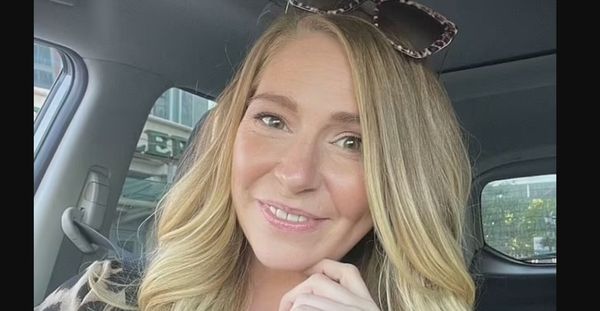A heartbreaking story has come to light about a dying woman who has been denied a life-saving liver transplant. Amanda Husk, aged 36, has been on life support for three months, desperately waiting for the organ she needs to survive. However, her hopes were shattered when medical professionals discovered that she had been drinking while on the waiting list, leading to her being denied the transplant.

The news has devastated Husk’s loved ones, who are well aware that she has only weeks to live. Despite her promise to enter an addiction program as soon as she received a new liver, her relapse has cost her the chance for the transplant. “This was a wake-up call for her. She wanted to make every effort to ensure she could get this transplant and turn her life around,” said her partner, Nathan Allen.
In a remarkable display of love and commitment, Allen even offered to donate part of his liver, as he is a matching blood type. However, the hospital’s strict guidelines prevent such a surgery from taking place if the patient has recently consumed alcohol. Although these rules are in place to maximize the success of transplants, in cases like Husk’s, they can seem harsh and unforgiving.
The denial of Husk’s transplant has sparked a conversation about the delicate balance between medical guidelines and compassionate care. Many argue that denying a transplant to someone who has relapsed, despite their intention to seek help, is too severe. On the other hand, some believe that these rules are necessary to prioritize the limited supply of organs for those most likely to benefit in the long term.
Regardless of the outcome, Nathan Allen stands by Husk’s side, both supportive and heartbroken. “She wanted to make the most of this opportunity to get a transplant and change her life,” he shared. Allen’s offer to donate his liver showcases his deep commitment to helping Husk, but unfortunately, the regulations prevent him from taking that step.
This news has deeply affected Husk’s family and friends, who have been praying for a miracle. The complexity of organ donation policies, especially in cases involving addiction issues, continues to be a topic of debate among medical professionals, ethicists, and the general public.
Despite this setback, Husk’s loved ones are determined to support her during her remaining time. They highlight her efforts to overcome addiction and her genuine desire to turn her life around. This situation serves as a stark reminder of the challenges faced by individuals with substance abuse problems, especially when they intersect with severe health issues.
As Husk’s story gains attention, it brings awareness to the challenges and complexities of organ transplantation policies. It also emphasizes the need for compassionate and personalized care within the framework of strict medical guidelines. Husk’s battle with alcoholism and her quest for a second chance at life resonate with many, shining a light on the human aspect of medical decisions.
Amanda Husk’s tragic situation serves as a poignant example of the difficult decisions faced by medical professionals and the profound impact these decisions have on patients and their families. Her story calls for a careful consideration of how we can strike a balance between medical regulations and empathy for those who are struggling with addiction.





